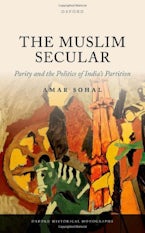- Home
- religion
- political science
- Resurrecting the Idea of a Christian Society

Resurrecting the Idea of a Christian Society
By: R. R. Reno
256 Pages
- Hardcover
- ISBN: 9781621573494
- Published By: Regnery Publishing
- Published: August 2016
$27.99
In Resurrecting the Idea of a Christian Society, R. R. Reno argues that there has been a “moral deregulation” of American society that has been more destructive than any economic deregulation. According to Reno, the source of this deregulation is a distinctly American view of freedom, namely that each person has the power to mold his or her destiny, unconstrained by hindrances of class, sex, race, and so forth. This quest for ever greater freedom has led to the progressive rejection of all limitations that might hinder this freedom, especially outdated moral restrictions, including even nature itself.
Reno devotes two chapters to exploring the impact of this unwinding of traditional values, arguing that it has disproportionately impacted the poor, while having little impact on elites. American elites (residents of a fictional “Belmont”) have enjoyed the benefits of the eradication of social norms but have possessed the financial and social capital to avoid its dangerous consequences, although Reno also argues that those same elites largely retain the structures and norms they have dismantled for the weaker classes. The poor (residents of a fictional “Fishtown”) have been torn apart by this moral deregulation, with high levels of crime, imprisonment, fatherlessness, addiction, divorce, and financial stress.
Reno proposes several areas for Christian engagement to reverse these trends. These include the recovery of a “courageous judgmentalism,” namely, a renewed societal commitment to traditional moral norms, a renewal of patriotism or solidarity, the limiting of government power through the acceptance of higher loyalties, the increase of mediating institutions, and seeking higher things.
While the book is more a series of vignettes than a political philosophy, it is in many places insightful, at times correcting conservative misunderstandings of contemporary progressive ideals. The catalogue of Fishtown’s ills makes for stark reading. Although directed principally at progressive views, Reno argues powerfully that conservatives are largely embedded in the same patterns of thought: “This is how we live: asceticism by day and hedonism by night, giving each god its due in its season” (140).
Reno’s prescriptions face numerous hurdles. If America’s moral deregulation is better seen as a gradual dismantling of existing social norms which has been willingly embraced by all levels of society, rather than something imposed on the poor by elites (as argued by Reno), then seeking to reverse these merely by publicly advocating conservative moral norms is unlikely to be well-received by any level of society. It is also difficult to see patriotism and limited government, even love to a higher ideal, as distinctively Christian viewpoints. If the synagogue and the mosque can make a claim on our loyalty (thereby limiting government power from below) as effectively as the church (130), surely any religion may serve the purpose?
When Reno descends to details, his policy prescriptions are, to put it mildly, somewhat unconvincing. He calls for a divorce tax applicable only to the rich, on the basis that “the rich” have weakened the institution of marriage, while the costs of this weakening are felt by the poor, and so “simple justice tells us that the rich should pay to mitigate the damage they inflict on the poor” (84). It may be asked how taxing the rich for divorcing (when those same rich, as Reno himself acknowledges, have the financial resources to cushion themselves against the negative consequences of divorce) will have any impact on divorce rates among the poor. Reno’s concession that he is no policy analyst is well made (85).
Finally, the argument for smaller government warrants further consideration, particularly in the light of comparative experience. In Australia, there is a much greater tradition of social democracy, including government intervention in labor market regulation and healthcare. The stunning success of the Australian labor movement means that Australians enjoy decent workplace entitlements (which are a constant, and welcome, surprise to incoming Americans), and a government-funded health system that is available to all, including the poorest. Perhaps not coincidentally, the divides between rich and poor are not, as a generalization, as stark as in the United States. These features of Australian governance, hotly contested ideological battlegrounds in the US, enjoy widespread acceptance down under. Perhaps a legitimate role for government in addressing the problems of modern society is not so easily dismissed.
Benjamin B. Saunders is a senior lecturer at Deakin University, Australia.
Benjamin SaundersDate Of Review:October 31, 2017
R. R. Reno is the editor of First Things magazine, “America’s most influential journal of religion and public life.” He previously taught ethics and theology as a professor at Creighton University. He is the author of several books, including Fighting the Noonday Devil, In the Ruins of the Church, and Redemptive Change: Atonement and the Cure of the Soul. Reno received a bachelor’s degree from Haverford College and a PhD in religious ethics from Yale University. He lives in New York City.











